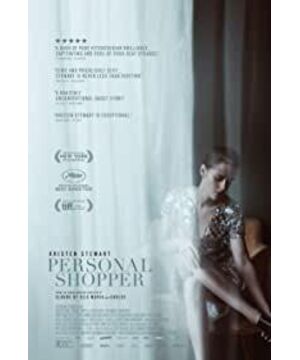Many people feel that this movie is illogical, slow-paced, and has no theme. If you explain it this way, it might make sense: the whole movie describes the condolences of an ordinary girl to her brother in the months after the bereaved.
Imagine the reaction of ordinary people after losing their loved ones. This movie is actually very real. After we lose our loved ones, we often go to the place where he lived, imagine that he is still there, imagine that his soul will talk to us in various ways. So this film is not a ghost film, and those episodes of dealing with souls are also girls' wishful thinking. From the bottom of her heart, she hopes that the soul will still be in the world after death, and that she can talk to relatives before her death, but she is also very cautious. She wants a "dialogue" with her brother instead of simply trying to prove that after death. The soul is still not in the world. The faucet in her brother's house suddenly turned on inexplicably. She was not happy, but shouted angrily: Is it just this? Is this what you are going to say? I'm not here to watch you play these! (Probably so) It shows that she really missed her dead brother, not just wanting a "proof".
In this way, it is easy to understand why she would reply to harassing text messages and keep talking. She subconsciously regarded the person who sent the text message as her brother. This is also the beginning she will ask strangers "Are you dead or alive". Who would ask the person who sent the harassing text message this question? Of course there is a hint of luck. It is still what I just said, she wants to talk to her brother again. She would even go to the address indicated to her by strangers alone. Why does she turn on the airplane mode frequently and refuse to receive text messages? Because her reason told her that this person could not be her brother, and it became clear that this person might be the boss's lover, she finally changed her mobile phone number. She is mad and rational. She is a psychic, but she has always emphasized to others that she is not sure whether the soul will remain in the world after death, but she herself is waiting for the impossible possibility.
In fact, this movie is full of such contradictions. She says she is a psychic, but in reality she is engaged in the extreme material profession of luxury goods buyer. She usually wears the most inconspicuous T-shirt and sweater, dressing herself as a tomboy, and desperately eager to try on the boss's gorgeous clothes and enjoy her sexy, naked, feminine side.
If you think of this movie as a video of life, and the time span of the whole movie is not long, then it is terribly real. How much of our daily life is occupied by WeChat/SMS conversations? The girl’s typing in the movie, every text conversation, watching online videos, facetime with friends, walking, riding a motorcycle, all occupy a lot of space, just like our ordinary lives. And everything that happens in the film does not need to be pavement for the plot, they can be ordinary details in life, a girl’s unique mourning, no explanation, no logic, because it’s also right. It is these boring and ordinary details that constitute our life.
View more about Personal Shopper reviews











